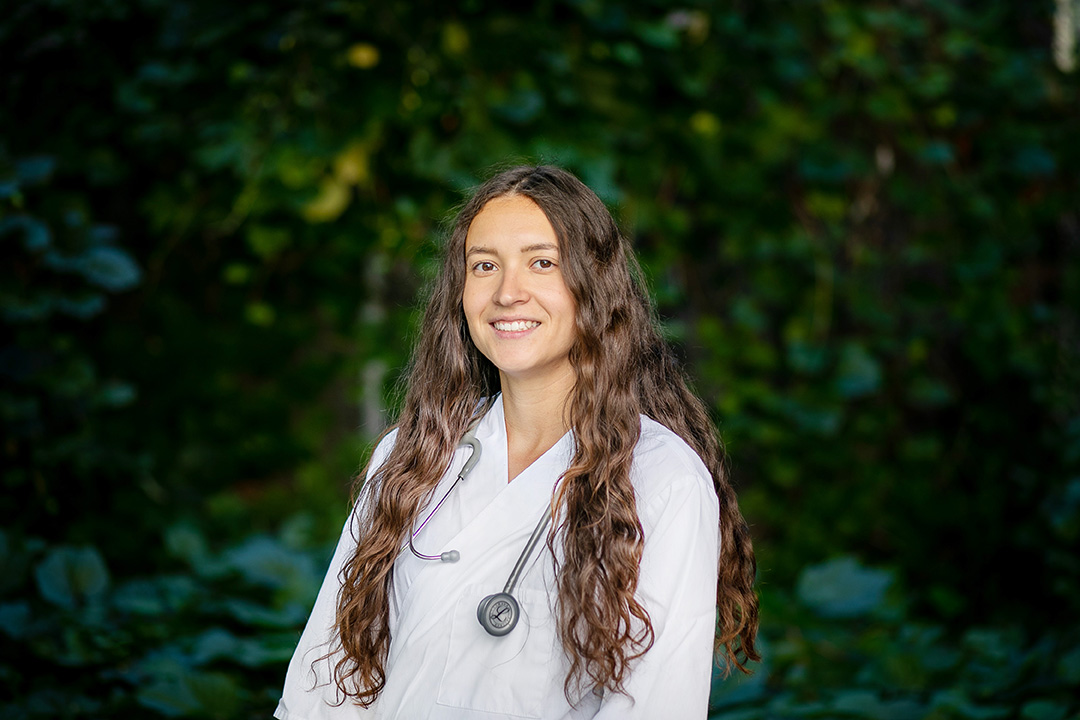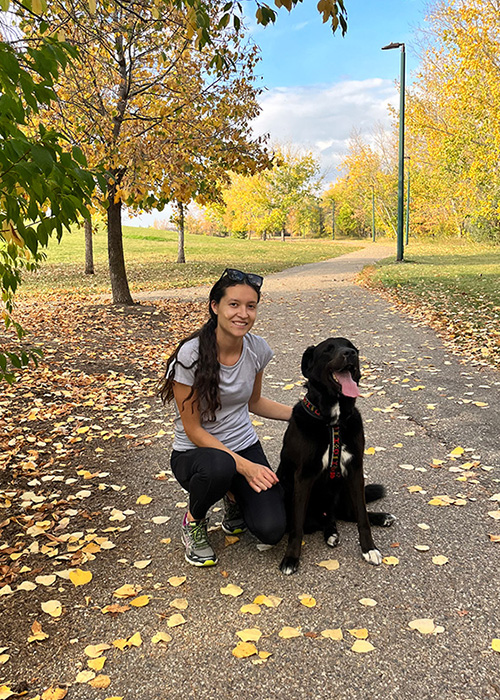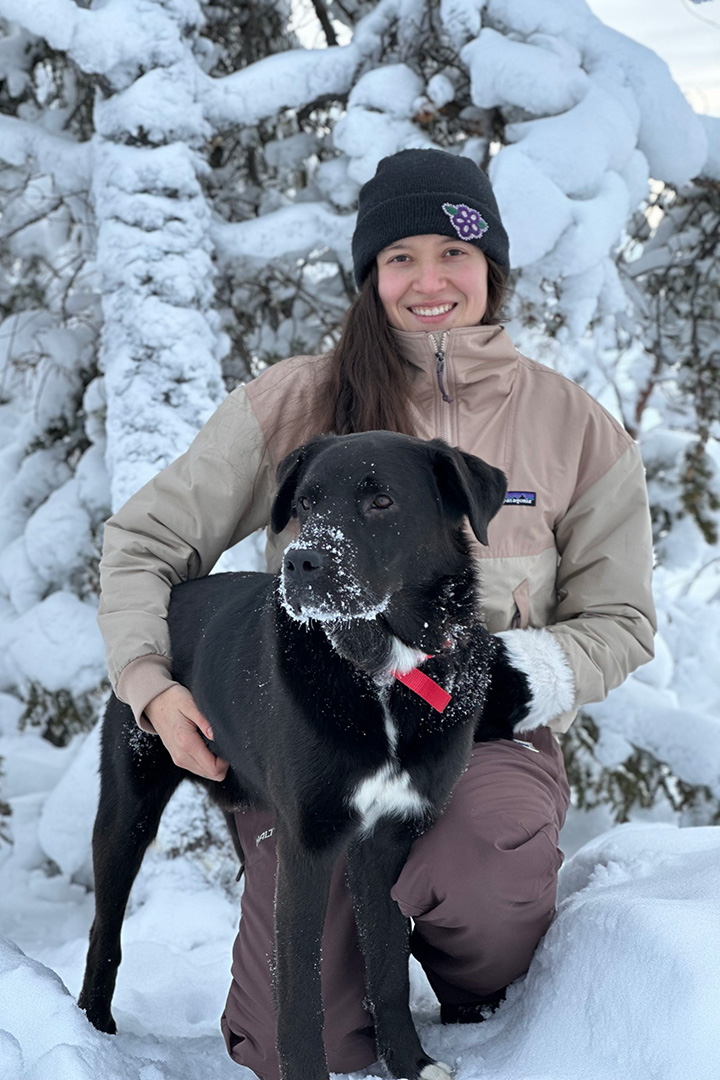
One Health reflected in northern student’s life and studies
Kandis Villebrun has great memories of growing up in Yellowknife, N.W.T., a city with a strong sense of community that offered many opportunities for her to volunteer and participate in sports.
By Lynne GunvilleVillebrun also enjoyed living so close to nature, and she loved the routine of outdoor activities after school as well as regular weekend trips to the family cabin. She treasures the memories of spending time with her two older brothers and her father as he taught them hunting and fishing skills while emphasizing the importance of nature and animals for subsistence.
“We were taught about the importance of respecting the environment and animals around us, and how that ties in with our Métis heritage,” says Villebrun who began her first year of veterinary studies at the Western College of Veterinary Medicine (WCVM) in August 2023.
“Animals have always been a part of our lives in some way, which grew my love and respect for them.”
From a young age, Villebrun knew that she wanted to direct her love of animals into a veterinary career, and she sought after experiences and training that would help her to fulfil that goal.

While pursuing a Bachelor of Science degree at MacEwan University in Edmonton, Alta., Villebrun learned about the Master of Public Health (MPH) program. She decided that once she’d completed her undergraduate degree, an MPH degree would be her next step — the perfect opportunity for her to learn about environmental health and make the connections between people and environment.
“When I started my master’s degree and I learned more about One Health, I realized that is why I wanted to be a veterinarian,” says Villebrun. “Learning primarily about human and environmental health I think has now brought me to animal health and tying them all together is my goal for a career.”
After completing the MPH degree, Villebrun spent over a year working as the Government of the Northwest Territories’ wildlife health intern under the supervision of Dr. Naima Jutha, territorial veterinarian and chief veterinary officer for N.W.T. Villebrun had a wide range of responsibilities that included sample collection, necropsies and chemical immobilization of wildlife such as black bears, moose and bison.
While Villebrun relished the opportunity for hands-on experience working with wildlife, she also greatly benefited from Jutha’s mentorship.
“In wildlife she [Dr. Jutha] has always put the welfare and needs of the animal first, advocating for their well-being in the natural environment,” says Villebrun. “I always admired how she was an advocate for the importance of vets in wildlife medicine and how it [wildlife medicine] influences the health of humans and the environment.”

During her internship, Villebrun also volunteered with Veterinarians without Borders-Vétérinaires sans Frontières (VWB-VSF). She travelled to Tuktoyaktuk and Fort McPherson where she represented the territorial government as a volunteer in a spay-neuter clinic and in the rabies lay vaccination program, an initiative that trains lay vaccinators in the far north communities.
Now that Villebrun is a WCVM student, she looks forward to learning about the many aspects of veterinary medicine, and she’s focused on broadening her experiences so that she can become a well-rounded veterinarian.
In addition to enjoying the company of her dog Buster, a rescue from Yellowknife SPCA, Villebrun plans on continuing her involvement in outdoor activities, and she looks forward to playing hockey and cross-country skiing during the winter months.
When Villebrun considers her future, she envisions a veterinary career in northern Canada that includes her main interests — wildlife, small animals and public health.
“I am drawn to these areas of veterinary medicine because they’re the most important areas that are in need where I come from,” says Villebrun. “And in either field that I end up in, I can see myself advocating for the importance of One Health.”
